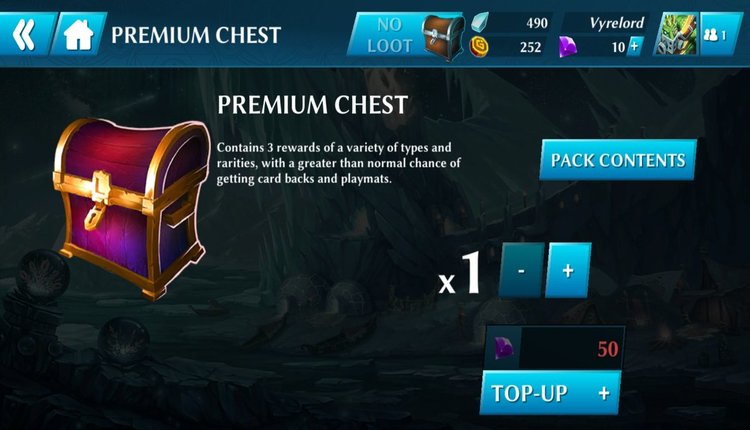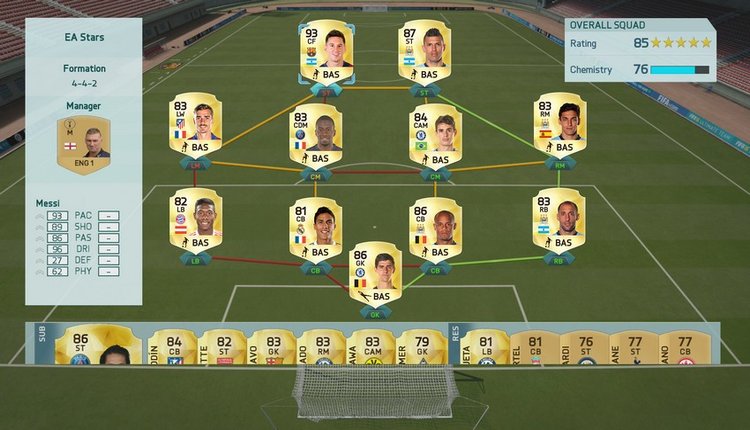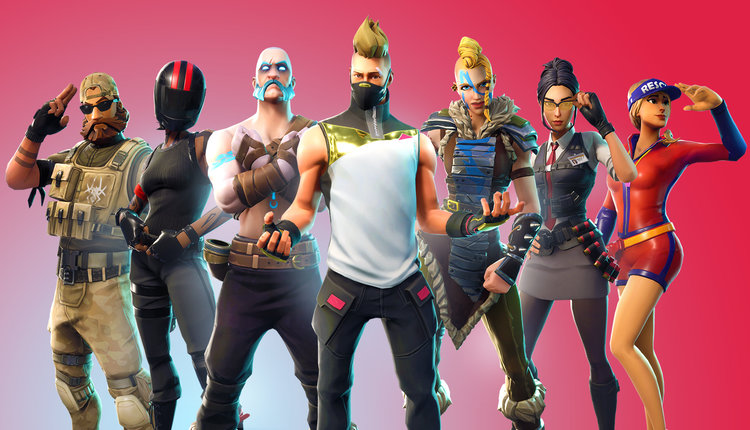Disease or Inevitability? A Guide to Microtransactions
As players, we’re always willing to take risks in our video games – sacrificing our souls in the hope of vanquishing a Lord of Cinder or launching an attack in XCOM with a 60 percent chance of success.
In retrospect, risk and reward has always been a corner stone with how we play our games. Tearing open a packet of trading cards is possibly the greatest endorphin rush you can experience as a kid. Whether it’s finding the missing piece of your already-beefy Yu-Gi-Oh deck, or that final Panini sticker of Harry Kane’s bewildered face. It’s the ultimate sense of completion you can achieve as a little ‘un. Now, that warm, fleeting sensation has been co-opted and corrupted by a sinister motive to generate money.
Gamers across the world have become consumed by the ever-evolving ‘loot box’ era – in-game purchases, represented by a virtual container, that gifts players with items, weapons, and modifications based on chance. The gaming community’s issue is the way games ask players to unlock, often pay-walled, content, encouraging gambling, especially amongst the current generation of youngsters. US politicians have even proposed legislation to regulate the sale of loot boxes to minors.

What are microtransactions?
Random Chance Items: These are the most common type of microtransaction, usually disguised as loot boxes, packs, or supply crates. The fact that the items are unknown lures the players into purchasing, while anticipating the thrill of unlocking something rare.
In-Game Currencies: Developers will typically create their own variant of currency which gamers can exchange for loot. Often concealing the true value of what the player is spending, games will imply buying more is the better value for money – €49.99 for 500,000 coins, rather than €6.99 for 2,000 coins.
In-Game Items: Depending on the game, microtransactions will either be cosmetic – colorful armor and weapon attachments – or will provide the player when a slight advantage in online combat. For instance, Grand Theft Auto V Online offers gamers highly expensive cars to race against other players.
Expiration: This variant is pretty self-explanatory. Games will provide optional content for a limited time, tempting players into buying for fear of missing out.
The best way to discuss the topic is to name and shame the culprits behind some of the most brazen and baffling decisions swimming around in the gaming industry at the moment.
But before we tackle the irritable traits of microtransactions, we must unpack the concept, with a sprinkling of examples.
Star Wars Battlefront II
Of course, we begin with the horribly beaten elephant in the room, Electronic Arts’ (EA) Star Wars Battlefront II (even mentioning the title makes me wince a little.) The fallout began when a Reddit user expressed his disgust that he had spent €80 to unlock Darth Vader. And once EA responded to the thread with, “we wish to provide players with a sense of pride and accomplishment for unlocking different heroes,” the controversy only snowballed from there. The thread has since been locked by EA due to spam, vulgar comments, and harassment being spread throughout the forum. Fair play internet.
It’s worth noting that most triple AAA video games retail at €69.99 when they initially release. So, it is rightly expected that players should have full access to all its features. Also, what is the main attraction for buying a Star Wars game? But to play as your preferred Jedi or Sith Lord and roundhouse kick the head off a storm trooper, right? And paying a further €80 to do so is understandably grating.
But EA continued to swat away the irritated masses by reiterating that gamers didn’t have to spend money to unlock these delightful treats, they could easily do it by grinding it out. (Oh goody.) Though, Reddit struck again by compiling a spread sheet calculating the exact time it would take a typical player to unlock Luke Skywalker or his daddy, if he or she simply “grinded it out.”
The average game time the Reddit user arrived at was a stinging 40 hours – keep in mind, this was to unlock one character. EA’s loot box system was designed to encourage players to spend money, despite the publisher’s incessant rebuttals.
Since then, however, in-game microtransactions have been removed from Battlefront II, but it’s warranted to be dubious, as EA are regularly concocting new ways to monetize their licenses and maintain their villainous stance in the gaming world. After all, this is the company that brutally murdered the Mass Effect series.
Destiny 2
When Bungie is not stabbing itself in the foot or aggressively punching itself in the teeth, they’re plastering over Destiny 2’s deeply-fissured content. The developer’s latest and notable gaffe came in the form of a pricey emote – an in-game gesture players use to greet, mock and communicate with.
Each month, Bungie launches a week-long multiplayer event titled Iron Banner, which offers players a chance to unlock exclusive rewards. On this occasion, they messed up massively, when they decided to put a nonsensical price tag – €9.99 – on a desirable item, that cannot be earned through playing the game, and has no valid purpose, other for your mate to say, “that’s cool.”
While a handful of players admitted they preferred paying for the emote directly, rather than wasting money on opening countless loot boxes, the rest of the fervent community took to the Bungie’s Reddit page to “politely” demonstrate their unrest – over 1,300 comments were posted, most of which were full of frustration, disappointment and quirky memes.
But this isn’t the first time Bungie attempted to short change their users through microtransactions. A lot of questions were asked about Destiny 2’s Bright Engram experience points system – defeating enemies and completing objectives, a bar will fill up, granting the player a level-up and an Engram, which are sold at the in-game store – and whether or not Bungie were reducing the experience points gained, making it harder to achieve, otherwise payable, items. Yet again, several Redditors tested this query by performing exhaustive tests in proving Bungie were indeed restricting the amount of experience points users earned during activities. The test showed that if players were earning experience points quite swiftly during a mission, then those players would earn less experience points the next time they launched that activity.
Realising this discovery was gaining traction, Bungie responded, quite sheepishly, and admitted their system was flawed: “we are unhappy with the results … effective immediately, we are deactivating this system.” That’s convenient.
Fifa 18
Oh, hello EA, back for more incredibly shady shenanigans? Only this time it comes in the form of everyone’s favourite footy game, FIFA. The game’s popular Ultimate Team (FUT) mode was one of the original systems to truly adopt and take advantage of microtransactions, back in 2008. Though, with each iteration, EA has continually added various elements, enticing users to fork out copious amounts of money to build…well, the ultimate team. In this system players must buy FUT card packs, with either in-game currency or real money, to find their favourite footballers. And since the in-game currency earned from online matches is particularly pitiful, fans will undoubtedly spend their money; packs range in price from €0.99 to €99.99.

Fans were so outraged at FUT’s drop rates – with a player being reported to have spent over €8,000 to acquire his preferred team – the community launched a Change.org petition known as #FixFifa, which reached over 42,000 supporters.
Middle Earth: Shadow of War
Microtransactions have recently began encroaching on single-player experiences. Often developers are lambasted for simplifying their games for certain audiences, and the incorporation of loot boxes only reinforces that argument. In Monolith’s Shadow of War, War Chests – a loot box variant – are available in the Market menu, with two distinct currencies: Mirian and Gold, each are used to purchase War Chests.
Now, a bit of context: narratively, the player is tasked with gathering an army of manic, cockney orcs, conquer Middle Earth, and finally, defeat that pesky Sauron. In these questionable loot boxes, however, are gear, power ups, and somehow, orcs. Purchasing these chests erases the core hook of the game: battling, recruiting, and more importantly, engaging with Mordor’s hilarious enemies.
Almost six months since its release, Monolith has removed all microtransactions from Shadow of War, merely a couple of weeks after EA decided to remove paid loot boxes also; both games were at the core of last year’s microtransaction debate. Coincidence? Maybe, but probably not. Regardless, both companies must review these exploitative practices if they wish to win back the support of their fans.

Fortnite
Loot boxes don’t have to be overwhelmingly negative, though, if introduced honestly and in way that doesn’t hinder the gameplay. Epic Games unearthed a highly-profitable gem this past year when Fortnite – specifically its Battle Royale mode – became a runaway success. Even if you aren’t an avid gamer, you’ve most definitely heard a young teen wailing about the third-person-shooter at some point.
Fortnite accomplished an elusive feat in getting gamers to indulge in microtransactions, without immediate blow back. Within this ultra-stylized, idiosyncratic phenomenon, players can either play for free – with horribly barren and beige equipment but providing the exact same gameplay experience – or pay a modest €5.99 for a Battle Pass. Around every two months Fortnite begins a new season of absurd antics, along with an optional pass – as players level, they will receive weird, wonderful and wholly cosmetic rewards such as a playable Kratos-inspired lumberjack and a balloon axe, but only if they purchase the add-on – which must be renewed every season. And what’s great about Fortnite is that, if players rank their Battle Pass completely, they would accumulate enough V-Bucks – in-game money – to unlock the next Battle Pass. This, of course, removes that anxiety of re-upping with real money in order to have the latest kit. Epic Games never shoves the pass in your face or demand fans to splurge; it unobtrusively says, “it’s there if you want it,” which is refreshing.
A fellow freebie, Warframe, adopted a similar approach. In its infancy, the game struggled, offering players two options: pay or play. And while paying wasn’t a necessity, the alternative was a chore – monotonously grinding limited resources to craft armor and weapons, when all of which could be simply bought. Recently Digital Extremes patched, updated and altered the way Warframe operates, by installing a bevy of new content, including new Frames – playable characters – events and a trading system that allowed users to easily obtain specific materials. Spending in Warframe has become redundant, as the grind – for once – is actually enjoyable.
Suffice to say, microtransactions do not belong in retailed games. As Fortnite and Warframe have shown, if a game is free-to-play (F2P) and the developer actively listens and converses with an audience, then the game is less likely to be embroiled in ignominy. But in an age where downloadable content (DLC) and season passes are a permanent bedfellow of major titles, it’s inevitable that microtransactions will continue to grow, as all power elites, even in gaming, are driven by money. Hopefully the gaming community will vocalise their gripes and concerns, deterring these financial predators, and prioritizing legitimate projects.

